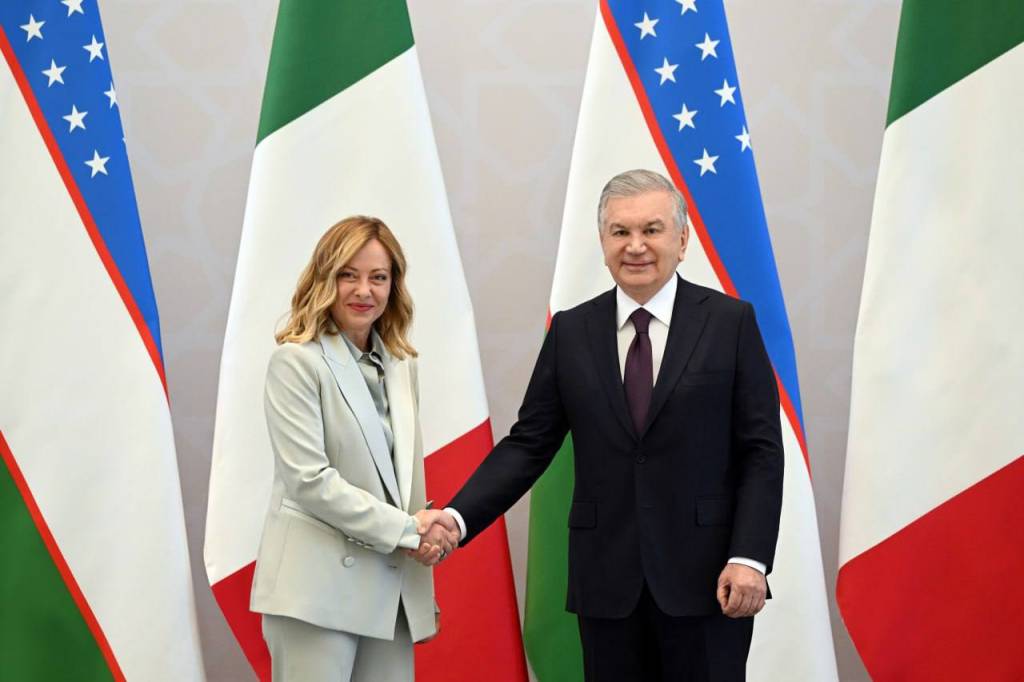
At the Congress Center in Samarkand, negotiations were held between the President of the Republic of Uzbekistan, Shavkat Mirziyoyev, and the Prime Minister of the Italian Republic, Giorgia Meloni, in a tête-à-tête format and with the participation of official delegations.
Issues related to the further development of the bilateral strategic partnership and the expansion of multifaceted cooperation were addressed.
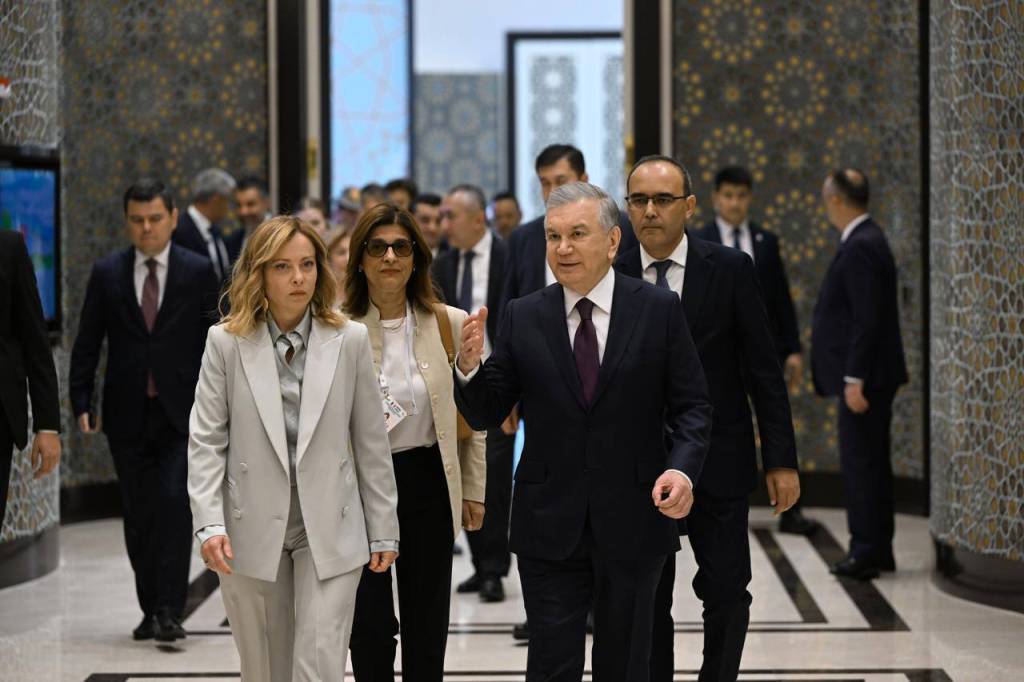
It was noted with satisfaction that the agreements reached during the high-level meetings in Rome in June 2023 are being consistently implemented.
In recent years, trade turnover has almost tripled due to the expansion of the range of mutual supplies.
The number of joint ventures and projects has doubled. Mutually beneficial cooperation has been established with leading Italian companies in metallurgy, electrical engineering, agriculture, livestock, tourism, and other sectors.
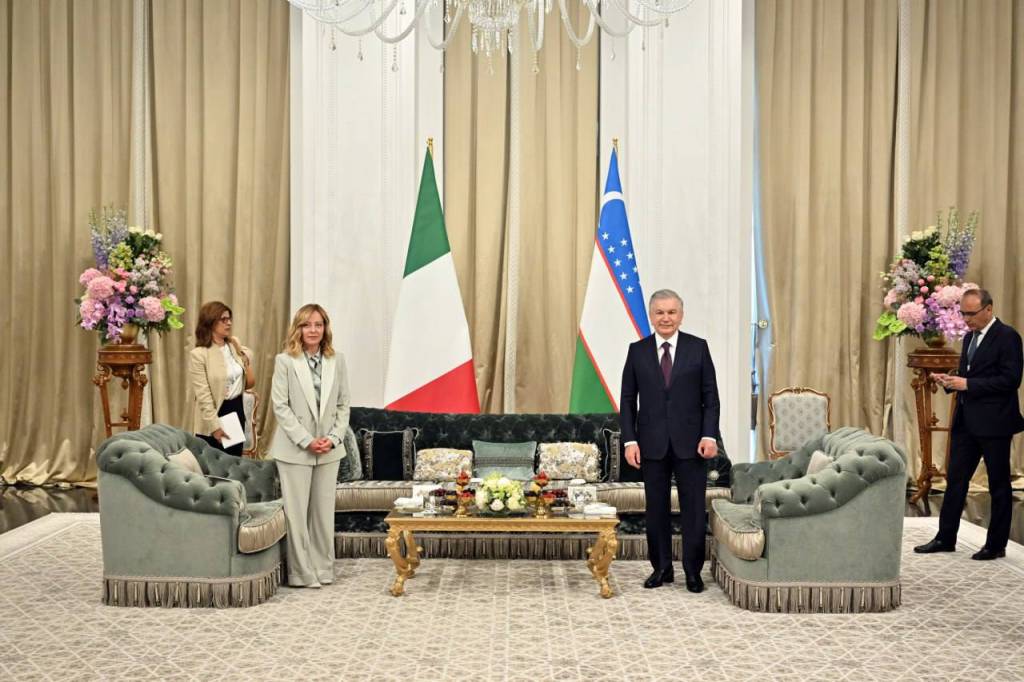
The Uzbekistan delegation actively participated in the Venice Biennale, and an exhibition was held in Florence. In December last year, Uzbekistan Culture Days were held in Rome and Viareggio.
Branches of the University of Turin and the University of Pisa are successfully operating in Uzbekistan. In April, the second Rectors’ Forum was held productively.
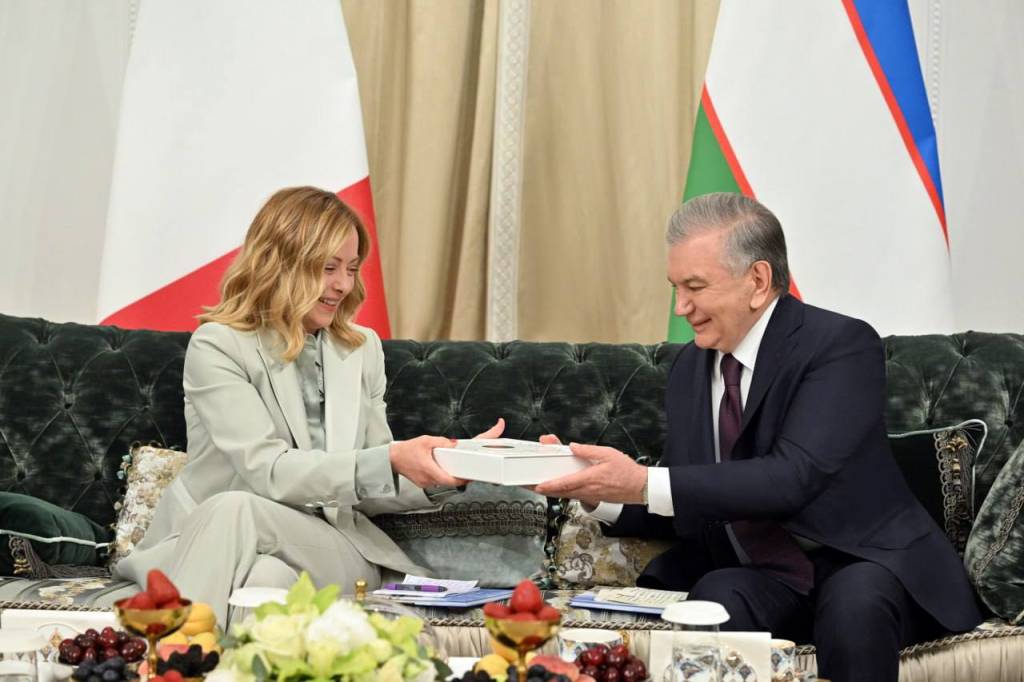
The sides expressed support for the continuation of active political exchanges.
Active cooperation with European Union institutions will continue, taking into account the fruitful summit held in Samarkand this April. The importance of holding a “Central Asia – Italy” summit focused on practical outcomes was emphasized.
An agreement was reached to expand technical assistance programs for businesses in the trade sector. This includes training Uzbekistan exporters to enter the EU market, establishing a joint Certification Center in Tashkent, and accelerating the Agreement on Conformity Assessment adoption.
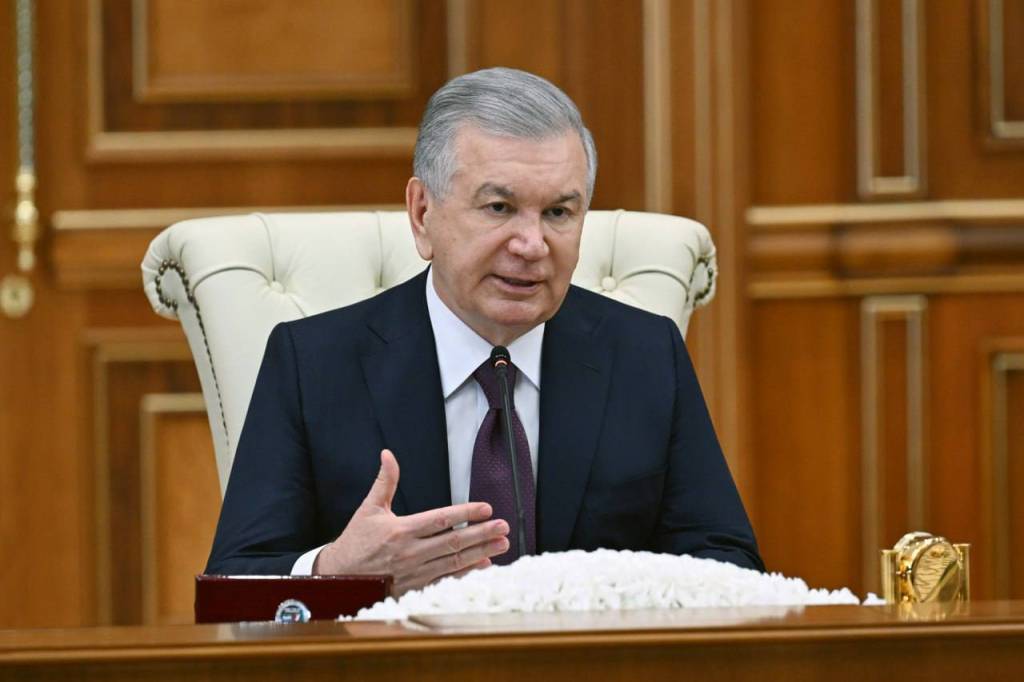
The President of Uzbekistan proposed launching a Technological Partnership Program with leading Italian companies.
Priority areas identified include innovative private business projects, deep processing of critical minerals and agricultural raw materials, production of component bases for the automotive industry, high value-added products in electrical engineering, energy, food, pharmaceutical, and construction industries, as well as the creation of design centers for the textile, leather, furniture, and other sectors.
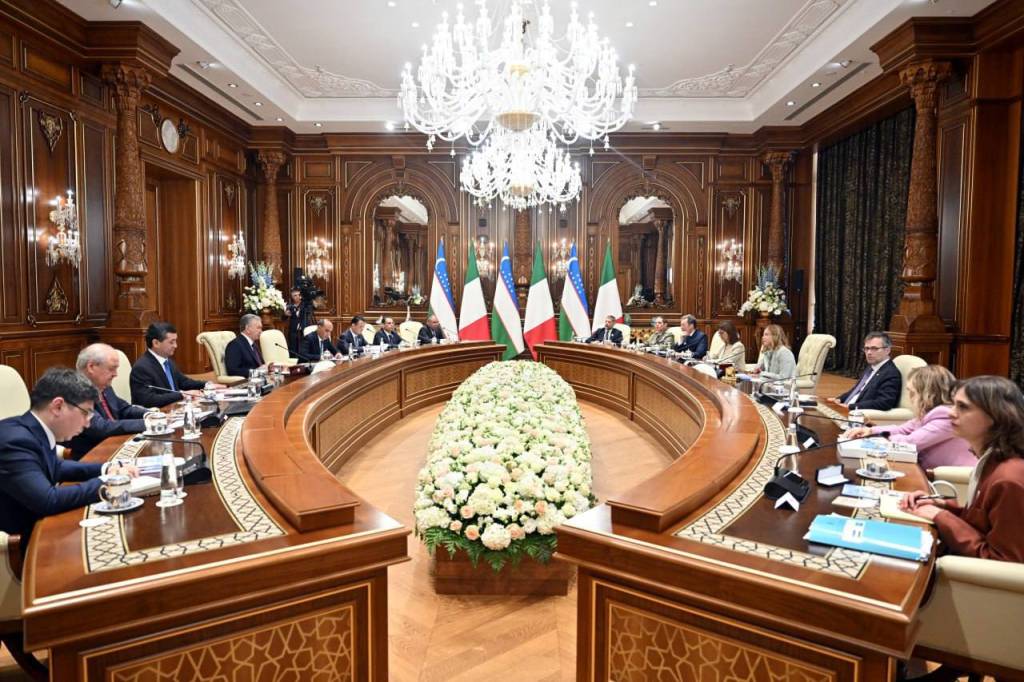
Such projects may be located in a specially established industrial park in Tashkent region, which will be managed by a European operator.
To launch new project support mechanisms, the creation of a joint investment fund and the involvement of Italian state agencies SACE and SIMEST will be considered.
Special attention was given to developing full-scale scientific and technological cooperation in agriculture based on a comprehensive roadmap. The prospects for cooperation were highlighted in areas such as grape, olive, saffron, and asparagus cultivation, the establishment of agro-laboratories, the development of biotechnology, and the introduction of agricultural insurance.
To advance new projects, it was agreed to resume the work of the Intergovernmental Group and to hold its meeting alongside a business forum.
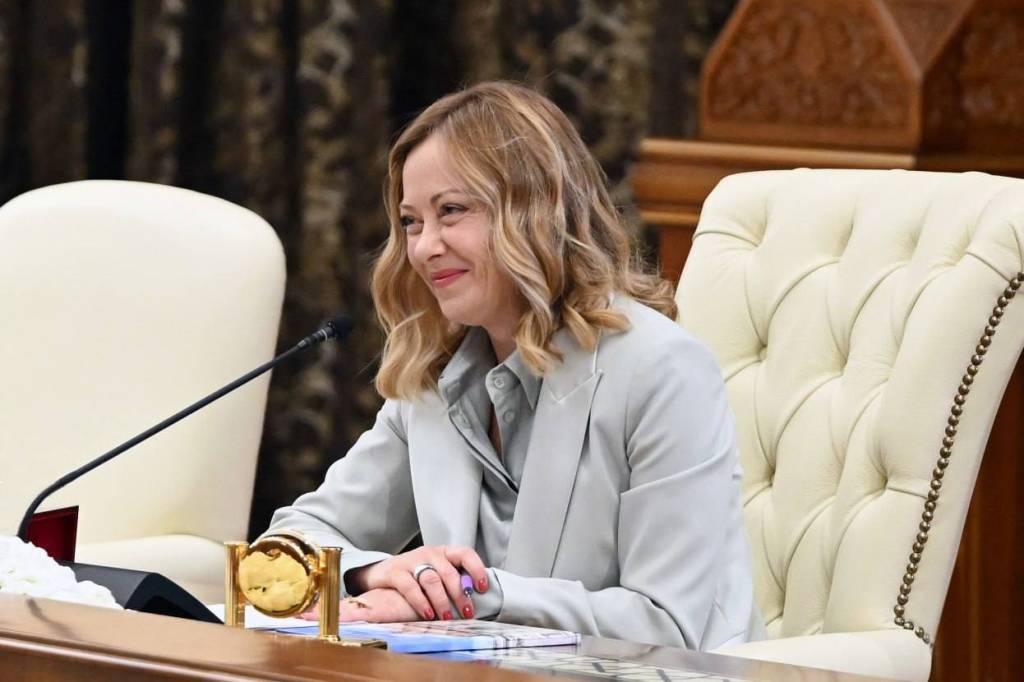
As part of expanding the partnership between the regions of Uzbekistan and Italy, the importance of achieving practical outcomes during the upcoming visit of the President of Lombardy, Attilio Fontana, and the first Regional Forum was emphasized.
In education, support was expressed for plans to launch a branch of the University of Tuscia in Uzbekistan and dual degree programs with the universities of Pisa, Trento, Roma Tre, and Ca’ Foscari.
An agreement was reached to hold Italian Culture Days in Uzbekistan.
It was noted with satisfaction that, during the current visit, an Agreement on Labor Migration was signed to organize systematic cooperation in this area.
Following the meeting, a decision was made to prepare a comprehensive roadmap for implementing the agreements reached.
UzA








